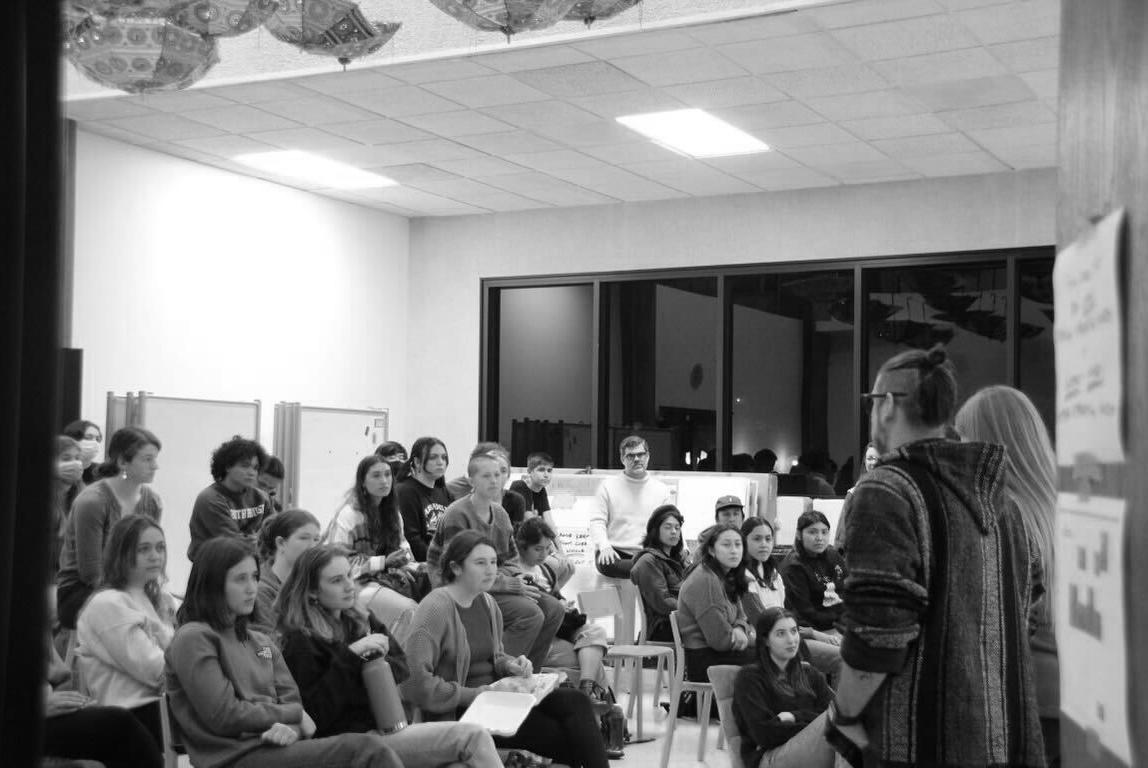
1 minute read
T e NANTs: Canvassing and policy education
Continued from page 1 ing of Claremont apartment complexes to urge tenants to attend and voice their support for stronger renter protections.
Inclusive Claremont hosted a “Tenants Rights 101” event at the Hive on Feb. 2 to educate students about renter protection policy at city and state levels and to recruit them to help with canvassing.
Advertisement
Over 40 students and other community members attended the event, which included presentations by Hernandez, student organizer Gwen Tucker SC ’25, Pitzer cook and Claremont Tenants United co-founder José Ochoa and Pasadena Tenants Union organizer Ryan Bell.
The weekend after the training, 20 students helped knock on over 500 doors to spread the word about the listening sessions and hear tenants’ concerns, according to Tucker.
According to Tucker, the idea for canvassing originated after realizing that Claremont wouldn’t be sending out flyers to tenants about the listening sessions.
Claremont conducted outreach for the sessions by sending out postcards last October regarding future tenant protections and publishing an article in a weekly News Update that residents can subscribe to, Wand told TSL via email.
However, despite this outreach, “only one of the people that we had a conversation with over the whole weekend had even known that this was happening,” Tucker said.
At both listening sessions, Wand explained that future ordinances could potentially make it more difficult for landlords to evict tenants with the stated intention of remodeling a unit.
Long-term renter Dr. Mike Boos, who has lived in Claremont over 30 years, has experienced several no-fault evictions.
“I just want people to understand the kind of stress that that puts on a renter, when you have a limited amount of time to move,” Boos said. “I came very close to not being able to secure a place to live.”
Ordinances could also create a rental assistance program or lower the amount that rent is allowed to increase every year, which is currently 10 percent in California. Ann Cotter, who has lived in Claremont for three years, urged the City Council to lower the cap on rent increases.
“My landlord, after my first year at my latest place, raised my rent … the full 10 percent,” Cotter said. “If he does that every year, I wouldn’t be able to live here.”
But Max Sherman of Apartment Association of Greater Los Angeles, which represents landlords and housing providers, said that rent control does not necessarily lead to more affordable housing.
“The problem with rent control is that it addresses a problem rooted in regulation with more regulation,” Sherman said, before urging the city to help builders increase Claremont’s supply of affordable housing at the first listening session.
After receiving public feedback, the ordinances will be presented to the City Council in April, Wand told TSL via email.








